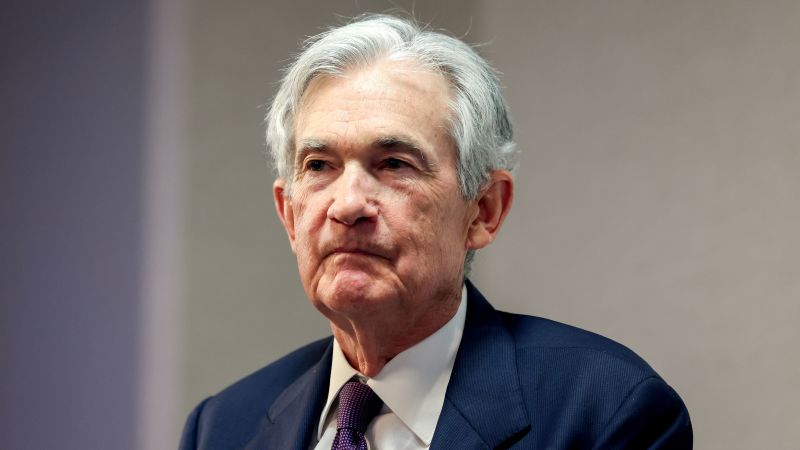On a Wednesday evening, President Donald Trump expressed his discontent with Federal Reserve Chair Jerome Powell’s management of interest rates, specifically arguing that they remain excessively high. During an Oval Office event where he was signing an executive action, Trump made a brief but notable statement concerning potentially reaching out to Powell. “I haven’t called him. I might call him,” Trump remarked, emphasizing his belief that the current financial conditions could be improved further if interest rates were reduced. He stated, “I believe he’s making a mistake by not lowering interest rates, and I think, as well as we’re doing, we could do much better.”
In a string of public comments over the preceding days, Trump attacked Powell directly, labeling him a “major loser” and suggesting that his removal from the position cannot come swiftly enough. Trump, who had appointed Powell to the role in 2017, has been embroiled in a tumultuous relationship with the Fed chair, oscillating between public resentment and reluctant endorsement. Despite these fissures, Trump had softened his rhetoric the previous day, signaling he had “no intention” of terminating Powell after being advised that such a move could lead to negative ramifications, both legally and economically.
However, on the same Wednesday, Trump resumed his critical commentary directed at Powell, insinuating that the Fed Chair was engaging in political maneuvering with regard to interest rate adjustments. “He’s keeping rates too high,” Trump stated, criticizing Powell for previously being slow to respond to inflationary signals by raising rates during earlier phases of the economic crisis. In a more indirect criticism, he mentioned, “He historically has been late… he was recommended by a certain person I’m not particularly happy with,” hinting at his displeasure with others involved in Powell’s appointment.
The tension between Trump and the Federal Reserve extends beyond personal animus; it has implications for economic policy and political strategy. Trump, along with several White House officials, has suggested that the decisions regarding rate reductions during the latter part of the Biden administration—yet to be seen during Trump’s presidency—could carry political motivations. However, it is vital to recognize that there is no substantiated evidence backing the notion that the Federal Reserve operates under any political influence. Powell has consistently maintained that the central bank’s monetary policy decisions are based solely on economic indicators rather than political considerations.
In defending the institution’s integrity, Powell has reiterated that the Federal Reserve will approach any decision regarding interest rates with deliberate caution, ensuring thorough discussions and evaluations before making any commitments. He underscored that there will be no rush to make emergency cuts ahead of the scheduled meeting for the rate-setting committee in May. This dedication to procedural rigor reflects the Fed’s commitment to maintaining its independence from political pressures.
Despite Powell’s assurances, Trump remains optimistic that the Federal Reserve will eventually make the right decision regarding interest rates, commenting, “He will hopefully do the right thing – the right thing is to lower interest rates.” Furthermore, Trump expressed confidence about the economic potential of the United States, particularly with tariffs beginning to generate revenue. He concluded with optimism about the country’s economic prospects, stating, “Our country is going to be doing really well, and hopefully he’ll, you know, we don’t have inflation.”
As the narrative continues to evolve, observers note that this remains a developing and complex story regarding the interplay of economics, politics, and leadership within the United States. Further updates will inform how these dynamics evolve, especially concerning the Federal Reserve’s monetary policy and the overarching economic circumstances that impact the nation.



